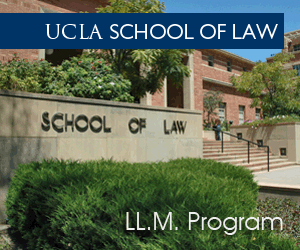Overview Profile Photos Programs Partners News Events
LLM in International Crime and Justice
Dates
Start Date: November
| Application Deadline: | Applies to: |
|---|---|
| August 22 | All Students |
| Admission Decisions released: September 20 | |
Details
Established: 2006
Course Language: English
Entry Requirements:
LLB/JD or equivalent law degree,
Non-law graduate degree where the subject area is a substantial element,
Non-law graduate degree where law is a substantial element
| Tuition fee: | Applies to : |
|---|---|
| EUR 7000 | All Students |
Scholarships available for: All Students
Course website:
http://unicri.it/services/education_training/postgraduate...
What the school says:
About
The Master of Laws (LL.M.) in International Crime and Justice is jointly organized by the Department of Law at the University of Turin (UNITO) and the United Nations Interregional Crime and Justice Research Institute (UNICRI). The LL.M., which is taught in English, is designed for those who seek a deeper understanding of international criminal law and crime prevention instruments, as well as an increased knowledge of the role and function of international organizations and tribunals operating in this area.
The LL.M. offers students a combination of academic training and practical experience in an unparalleled setting at the United Nations Campus in Turin. It aims to provide an in-depth knowledge of the theoretical and practical aspects of international instruments and tools for the prevention and punishment of international and transnational crimes such as war crimes, crimes against humanity, organized crime and terrorism.
The LL.M. examines legal aspects related to the specific features of international jurisdictions. It also undertakes an extensive up-to-date analysis of the activities of international criminal tribunals and special courts.
The LL.M. lasts 9 months, which comprise an e-learning module (Dates for 2013/2014: November 2013 - January 2014), followed by an on-campus module (Dates for 2014: January – July 2014).
The lecturers are experts from nationally and internationally recognized academic and research institutions, as well as practitioners from the UN System and international courts.
Areas of Law
You may also be interested in the following Schools:






 Boston College
Boston CollegeLaw School World-class legal education
Extensive curriculum
Unparalleled individual attention



 Université de Lausanne
Université de LausanneFaculty of Law Unique postgraduate programme
in English, one year of full-time
flexible schedule options








 University of Heidelberg
University of HeidelbergUniversity of Chile Investment, Trade and Arbitration
English and Spanish
Santiago de Chile and Heidelberg





 Case Western Reserve
Case Western ReserveUniversity School of Law Three LLM specifications
Students from 70 countries
Individual attention and guidance








 UCLA School of Law
UCLA School of LawLos Angeles, California The Beach, The Sun and The City!
International and Comparative Law
Entertainment and Media Law


